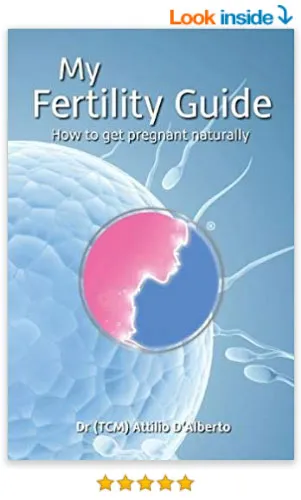How to find out when you ovulate
On this page
1. Overview
A lot of women are unaware of when they ovulate. This can mean missing the right time to try and conceive a baby. Below are extracts from My Fertility Guide on when to try and conceive a baby naturally.
2. When will I ovulate?
Different women will ovulate at different times. However, the standard time of ovulation is mid-cycle, around day 14-15. For couples trying naturally it is ideal to have intercourse 1-2 days before the LH surge as it can take between 30 minutes to 2 hours for the sperm to travel up into the cervix and into the fallopian tube where insemination takes place.
The sperm travel up into the cervix via the woman’s cervical mucus discharge, which is thick and stringy like white of an egg. It acts as a ladder for the sperm to climb up and into the uterus. If no cervical mucus exists, it could either be high up in the vaginal canal or there isn’t a lot or none at all. Otherwise, an artificial substitute to the cervical mucus can be used to assist the sperm into the cervix, for example Pre-Seed. This is applied before intercourse.
3. Ovulation symptoms
Some women notice twinges and bloating a few days before they ovulate as the follicle swells inside them and puts pressure on surrounding structures. This is a good time to start trying. If the twinges are painful then it may indicate cysts or polyps on the ovaries. In such cases, a scan is useful to identify any abnormalities.
Some women may feel tired and crave sugar. It takes a lot of energy and resources to produce a good quality egg every month. Feeling tired during ovulation highlights a possible qi and blood deficiency. Some women may get lower back pain. This highlights a possible problem with yin or jing. Some women may feel dizzy or aren’t as mentally alert as normal, which highlights a lack of blood that is being exhausted producing the egg and thickening the uterus lining.
4. When to conceive naturally
Couples can try two to three days before ovulation every day to ensure they have covered all chances. Fertilisation needs to take place 12-24 hours after the egg has been released. It is not advisable to try excessively at other times in the cycle as this can lead to male fertility problems caused by the exhaustion of essence (jing).
5. What happens after I ovulate?
Once natural insemination takes place, the fertilized egg travels down the fallopian tube into the uterus. Any blockages en route or a lack of yang might cause the fertilized egg to become logged against the lining of the fallopian tube where it will start to grow, causing an ectopic pregnancy. This can be life threatening for the woman. Once the fertilized egg (zygote) has reached the uterus, it will implant into the side of the uterus wall around 6 days after ovulation. The egg does this by burrowing a small hole into the wall, known as hatching.
Once implantation has taken place, blood flow will quicken and energy and blood demands will increase upon the mother. This is why some women feel tired when they fall pregnant and start to feel warmer, especially at night-time. There are many more early signs of pregnancy that you may feel.
6. How to get pregnant book
To boost your chances of getting pregnant you need to know the basics about your fertility. Read my self-help book on how to get pregnant titled My Fertility Guide. Here is a summary of what you need to know to get pregnant fast:





















